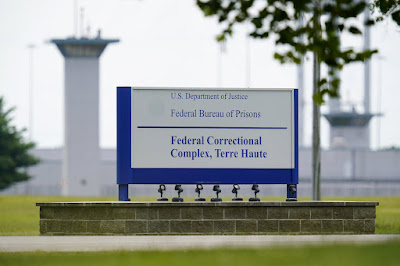Execution was the family business for Albert Pierrepoint
Those that drank in his pub had no idea.
They were totally unaware that the man serving them a pint of ale after a hard day’s graft had killed more than 400 men and women.
It wasn’t something that Albert liked to talk about.
He was no serial killer, he was Britain’s most prolific hangman, and from as far back as he could remember, he always wanted to put people to death.
He hanged seven people in Wales in just six years, between 1948 and 1954, including the last person to be hanged in Cardiff, and the last person to be sentenced to death in Carmarthen.
So what made Albert Pierrepoint the most feared and respected hangman in the land and the last man to hang a woman in Britain?
Well, killing was a family business.
Albert's father Henry and his uncle Thomas were the last people to hang a woman in Wales, and they put five people to death in Cardiff, alone..
Henry Pierrepoint was born in 1878, and became a hangman in 1901, assisting James Billington, who had carried out the first execution in Wales in the 20th century when he put William Augustus Lacey to death in 1900.
He was soon the principal executioner of Britain, and persuaded his older brother Thomas to join him on the gallows.
In his nine years as a hangman, Pierrepoint senior carried out 105 executions. His career came to end when he turned up to hang someone while drunk, and his name was struck from the list of approved executioners.
He died in 1922 following a long battle with alcoholism.
His bother Thomas lasted much longer in the hanging business, taking up his position in 1906 and retiring 38 years later in his 70s.
In that time it’s believed that he carried out almost 300 executions.
His nephew, however, would prove to be even more prolific with the rope.
As an 11-year-old boy Albert Pierrepoint already knew what he wanted to do with his life.
During a school exercise he even wrote that “when I gro up I want to be the Official Executioner” and would read his uncle’s diary, which detailed everyone that had been put to death by his hand.
Albert was born in Clayton in Yorkshire in 1905. When he was just two his father an uncle hanged Rhoda Willis, a woman from Splott in Cardiff who had been convicted of killing a baby.
Albert would soon get a taste for his father’s work and he finally became an executioner himself at the age of 27.
He spent some time in London on a training course, where he was given a dummy to practice hanging with.
By now his father had died in his mid-40s, driven to drink by his job.
The extent of Pierrepoint senior’s battle with alcohol led Albert’s uncle, Thomas, to warn his nephew that “if you can’t do it without whisky, don’t do it all”.
Albert went on to work alongside his uncle for 13 years before becoming a lead executioner himself in 1940, starting his work by putting a noose around the neck of gangster Antonio Mancini, who apparently said “cheerio” as the trapdoor beneath him opened and his life came to a close.
He went on to garner such a reputation that the British Government called on his services to execute war criminals following World War Two.
He executed Nazis, including 13 in one morning.
Albert retired at the age of 51 after a disagreement over a hanging fee.
In January 1956 he had travelled to Strangeways Prison in Manchester to hang child-killer Thomas Bancroft.
However, after going through his usual preparations, Albert was stood down at the eleventh hour after Bancroft received a reprieve.
He still expected to be paid in full for his time, but the £15 fee was not forthcoming, and instead he was paid just £1, as rules stated that the executioner was only paid if and when people were put to death.
Albert did not agree, having travelled to Manchester, prepared everything and even paid for a hotel in the area to stay overnight.
His pride wounded, he retired and focused on running his pub, called Help The Poor Struggler, in Oldham, before taking over the running of another northern boozer, the Roser and Crown in Much Hoole, Lancashire.
Some of Albert Pierrepoint's high profile Welsh hangings
- Timothy Evans
Evans was born in Merthyr Tydfil in 1924. Having moved to London, he married Beryl Thomas in 1947 and the newlyweds moved into a flat at 10 Rillington Place, becoming neighbours of John Christie in the process.
On December 2, 1949, police found the bodies of Evans’ wife Beryl and their only child, Geraldine.
They had been wrapped in a tablecloth in a wash-house in the garden of the house.
Evans was put on trial for murder and found guilty. He was hanged by Albert Pierrepoint on March 9, 1950.
Three years later, six bodies were discovered in 10 Rillington Place and John Christie was arrested.
He had killed at least eight victims, and it soon became clear that the authorities had killed the wrong man.
Thomas received a royal pardon in 1966, 16 years after his death, and his family were paid compensation in 2003.
Pierrepoint, who had hanged Thomas three years earlier, also hanged Christie in 1953.
The real killer apparently complained that his nose was itching as he awaited for the noose to do its job, at which point Pierrepoint is said to have replied “it won’t bother you for long”.
Read more about the tragic case of Timothy Evans
here.
- Ronald Harries
Harries was the last person to be sentenced to death in Carmarthen. He had bludgeoned two of his relatives to death near Pendine in 1953.
The bodies of John and Phoebe Harries were discovered buried in a field. They had both been killed by blows to the head by a hammer.
Pierrepoint hanged Harries at Swansea Prison on April 28, 1954 in what was the last ever hanging in Swansea.
Read the full story
here.
- Ruth Ellis
Welsh model Ruth Ellis shot and killed her lover David Blakely on Easter Sunday in 1955 outside a pub in London.
Ellis, born in Rhyl in 1926, is the last woman to be hanged in Britain. Her death was a major talking point across the nation as the merits of capital punishment continued to be addressed.
It was said that Blakely had been violent towards Ellis and the murder was referred to by some as a crime of passion.
A petition calling for a pardon was signed by 50,000 people but rejected by the Home Secretary.
She was hanged by Albert Pierrepoint July 13, 1955, and her death is credited with hurtling the UK towards abolishing the death penalty, which eventually happened in 1965.
- Mahmood Mattan
The last man to be put to death in Cardiff, Somalian-born Mattan was found guilty of slitting the throat of a 41-year-old woman.
Despite pleading his innocence, he was sentenced to death at Cardiff prison after being told by police that his fate was sealed "whether he did it or not".
Mattan was hanged by Pierrepoint on September 3, 1952.
The family he left behind campaigned for years on Mahmood's behalf and finally, the conviction was quashed in 1998.
The family were awarded compensation of more than £1m. You can read his full story
here.
How the hangman viewed his own career
Albert Pierrepoint died in a nursing home in 1992 at the age of 87.
Despite putting more than 400 men and women to death during his time as a hangman, Pierrepoint once mused that he was not a believer in capital punishment, unsure as he was if the ultimate penalty did its job in discouraging the ancient act of murder.
In his autobiography, written almost 20 years after he had hanged a person for the last time, he wrote:
“There have been murders since the beginning of time, and we shall go on looking for deterrents until the end of time.
"If death were a deterrent, I might be expected to know. It is I who have faced them last, young lads and girls, working men, grandmothers.
"I have been amazed to see the courage with which they take that walk into the unknown.
"It did not deter them then, and it had not deterred them when they committed what they were convicted for.
"All the men and women whom I have faced at that final moment convince me that in what I have done I have not prevented a single murder.”
Source: walesonline.co.uk, Robert Harries, January 27, 2019
⚑ | Report an error, an omission, a typo; suggest a story or a new angle to an existing story; submit a piece, a comment; recommend a resource; contact the webmaster, contact us:
deathpenaltynews@gmail.com.
Opposed to Capital Punishment? Help us keep this blog up and running! DONATE!
"One is absolutely sickened, not by the crimes that the wicked have committed,
but by the punishments that the good have inflicted." -- Oscar Wilde
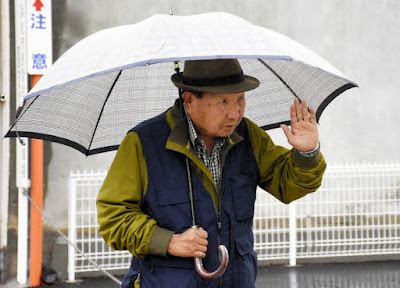
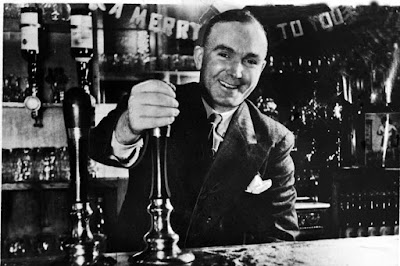



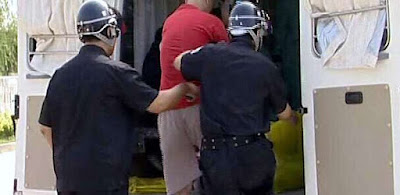



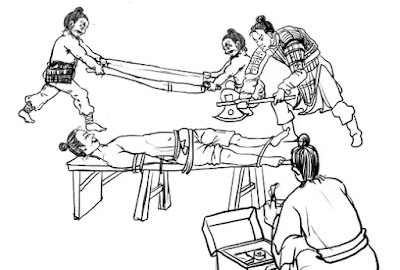

.jpg)
